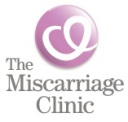Mr Gordon works as a urologist with a special interest in male infertility and sexual function. His research has involved the use of serum markers and ultrasound techniques in the diagnosis of male factor infertility.
Mr Gordon works alongside gynaecologists treating female partners at both St Helier and Epsom hospitals. He runs a specific male fertility clinic seeing men from throughout southwest London and Surrey.
As part of this role, Mr Gordon will commonly see men in his clinic - often with their partners - to assess the reasons behind any infertility. As a urologist, he is also able to deal with any urinary or genital problems such as prostate or testicular disease that may also be present. Whilst working closely with his gynaecology colleagues he can best advise what treatment options may be available taking into account both partners.
Treating male patients with fertility concerns as a urologist allows new and innovative practices to be introduced whilst understanding the impact on a man's general health and wellbeing. He advises the South West London Cancer Network regarding fertility and the effects of cancer treatment and is currently developing further the services available to men locally regarding male infertility.
|
Male Subfertility
|
|
Introduction The success of assisted reproductive technology such as IVF and ICSI means it has often become standard treatment for many couples. The evaluation of the man however, should be similar to that of other medical problems. The benefit of the evaluation is to identify reversible conditions and treat appropriately. If irreversible, identify promptly to advise type of assisted reproductive technology using the male partner’s sperm. If irreversible and not treatable with ART to advise donor sperm or adoption. In addition, significant underlying medical pathology should be excluded and the impact of any genetic abnormalities on the patient or his offspring if fertility treatment is successful needs to be addressed.
History Full medical and reproductive history of the male partner in conjunction with the knowledge of the female partner’s reproductive status and timing of intercourse is important. Erectile and ejaculatory function should also be assessed. Developmental history and surgical treatments may be important as well as family history. The presence of urinary tract or sexually transmitted infections may also be relevant. The use of some medications can negatively effect sperm production and recreational or performance enhancing drugs may also have a significant impact. It is important to carefully and swiftly manage patients with a diagnosis of cancer as both the condition and its treatments can have a significant and irreversible impact on potential fertility.
Examination Physical examination may identify abnormalities associated with infertility. In particular hormonal or genetic abnormalities may be implicated. Testicular and genital examination is important determine causes of infertility and also exclude other serious conditions such as testicular tumours.
Initial Laboratory Tests Semen analysis This is an important tool in evaluating the male partner when performed accurately. The result is not a measure of fertility necessarily and may be repeated over weeks or months to assess reliability or effects of treatment. Attention to detail in collection and processing are important to help determine the significance of findings. Sperm can be assessed for number, motility, shape and vitality. In addition the volume and pH of the semen may reveal an important cause of infertility. The presence of infection may also be detected or suspected at the time of microscopy. Hormonal assessment Although reproductive function is dependent on hormonal signals the majority of men do not need hormonal assessment. However, in a significant minority the levels can be very important to determine as it may be possible to either treat with hormones or understand or explain the type of fertility problem.
Additional Testing Various additional tests may be required in specific cases, these include: Ultrasound imaging of the testicles, prostate or urinary tract Genetic Testing – this may be important not only as an explanation of infertility but also for associated health issues, directing fertility treatment options but also potential consequences for offspring following IVF techniques.
Inheritance of Cystic Fibrosis Gene Mutation A small group of men who present with severe male infertility are advised to be screened for cystic fibrosis mutation. These are men who present with profound oligo-azoospermia, in whom there is often congenital absence of the vas deferens.
Inheritance of Subfertility Certain severe forms of male infertility have a genetic basis and it is therefore possible that fathers may transmit their subfertility to their sons. In this situation, the children may themselves require fertility treatment when they attempt to become parents.
Sperm DNA Integrity & Aneuploidy Testing Although relatively novel tests, measuring sperm DNA damage may be useful for some couples. Certainly men with a high degree of damage have a much lower chance of a spontaneous pregnancy. It may also be useful to help determine whether insemination or more advanced assisted reproductive technologies are likely to be successful. DNA damage or aneuploidy may also be a factor for couples suffering from recurrent miscarriages.
Treatment options Treatment is best directed at specific causes such as problems at the hormonal level or with testicular problems, sperm production or transport through the tubes. In addition, surgical sperm retrieval for use with assisted reproductive techniques can also be performed in many ways depending on the underlying cause. Such treatments should not be undertaken in isolation and the female partner’s situation must be strongly considered.
Lifestyle,Toxins & Occupational Exposure Avoidance of heat exposure is recommended which may be caused by occupational or recreational activity. Regularity of intercourse rather than specific timing is recommended. Moderate alcohol intake without episodes of excessive consumption does not appear to affect male fertility. Smoking, however is detrimental to both partners and potentially causes oxidative stress in sperm production possibly more so in men with already reduced quantity or quality of sperm. Recreational drugs such as cannabis or cocaine can reduce fertility. Drugs such as anabolic steroids or testosterone will potentially cause irreversible damage to sperm production. Exposure to certain chemicals, heavy metals, pesticides or solvents and even prenatally may explain subfertility. Many vitamin or nutritional supplements have been suggested. A recent systematic review has recommended the use of anti-oxidants. The exact type or dose is not known however a combination of a healthy diet and possible supplementation may well improve sperm function.
Medication Rarely, specific medication can improve male fertility in certain situations. However, the treatment of some medical conditions including; high blood pressure, prostate problems, infections and bowel disorders may cause fertility or sexual problems. Chemotherapy may also have a temporary or permanent effect on sperm production.
Varicocele treatment A varicocele, or collection of enlarged veins around the testis is associated with reduced function of the testicles. Treatment is a relatively simple day case procedure and although not guaranteed may well improve sperm numbers and function in certain men. This treatment option as with all others should take into account the female partners age and fertility status.
Reconstructive surgery The most common reconstructive surgical operation in male fertility is a vasectomy reversal. The operation may well be the the most cost effective approach and may allow a natural pregnancy. However, results are not guaranteed but best with microsurgical techniques and in those with less years from the original vasectomy. Again the female partners age is also important in recommending such a treatment. Freezing of a sperm sample can also be performed at the time of reversal.
Surgical sperm retrieval (PESA, MESA, TESA, mTESE) Advanced reproductive and sperm retrieval techniques now potentially offer men opportunities to father their own children. It is always important to consider the impact of such treatments on the general health of the man and their potential offspring. |
A guide for men in whom their fertility may be affected by cancer or it's treatments.
FS3-OF MenPreserving final5-5.pdf
Adobe Acrobat document [2.0 MB]






